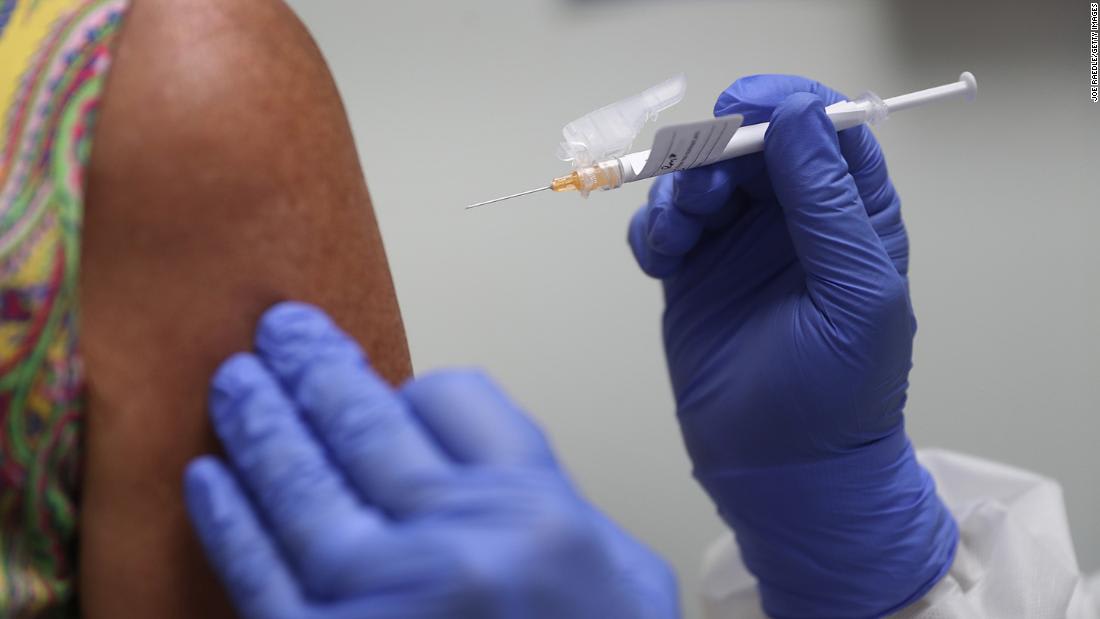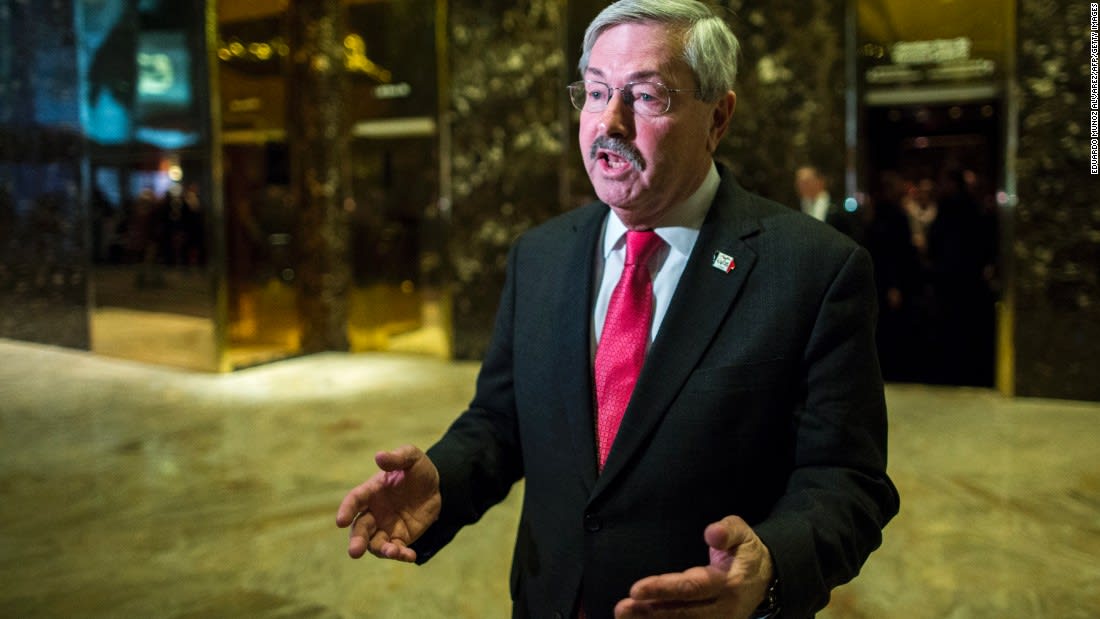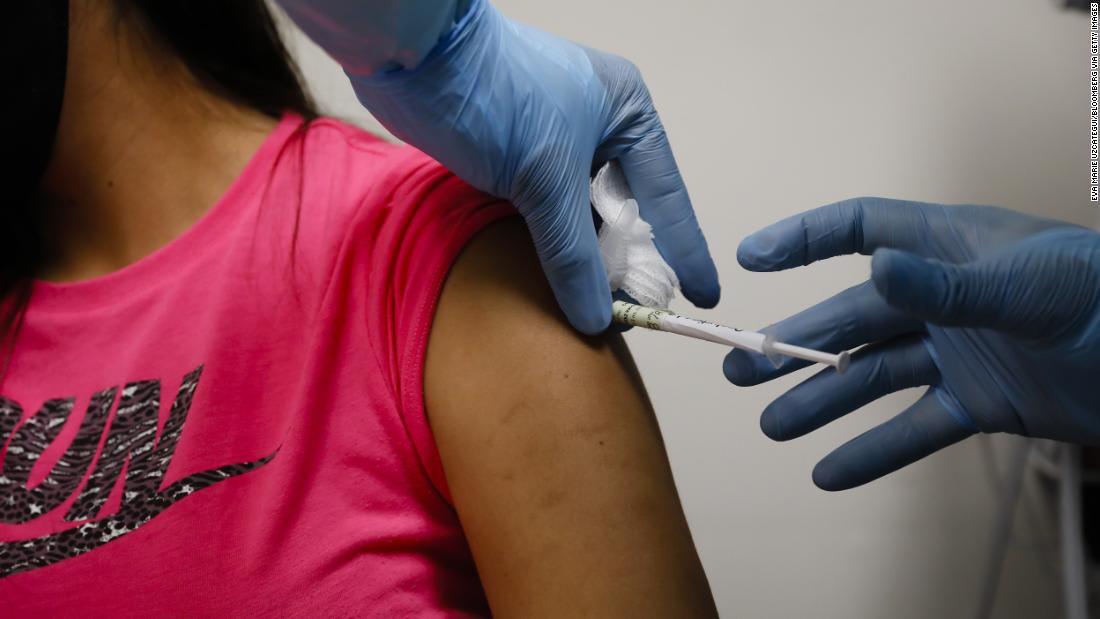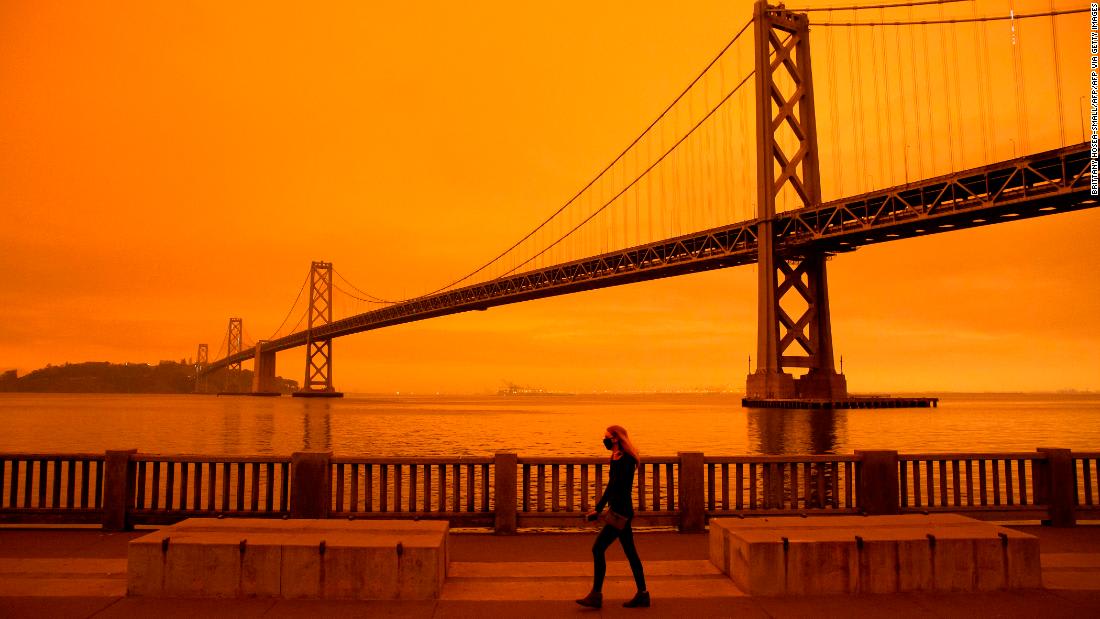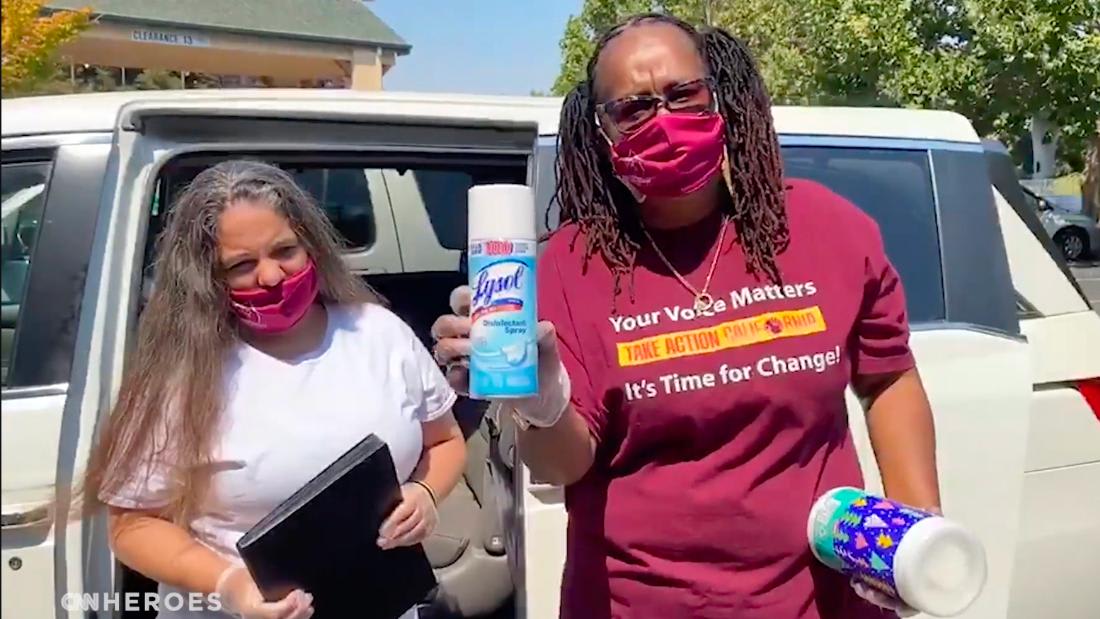London cancels New Year’s Eve firework display
From Niamh Kennedy
A New Year's Eve firework display which traditionally takes place in central London has been canceled this year, said Sadiq Khan, the city's Mayor. Speaking to the radio station LBC on Friday, Khan said the official celebrations have been halted to prevent crowds congregating in the center of the British capital.
According to Khan, the threat of the virus means that “we simply cannot afford to have the numbers of people who congregate on New Year’s Eve congregating.”
Khan also said that local curfews and lockdowns “may well be coming to London” as case numbers continue to rise in the city. Referencing restrictions in northeast England that force pubs, bars, and restaurants to close at 10 p.m., Khan said that similar restrictions may be introduced in London if necessary, to curb the spread of the virus.
Khan said he was “keen to avoid” such restrictions being imposed in the city, but “fully supported the rule of six”, which bans more than six people gathering in England.
The Mayor said that he and his team are looking into doing “something that people can enjoy in the comfort and safety of their living rooms on TV.” He added that that London can’t afford to lose the New Year's Eve slot and the opportunity it provides to showcase to the world “how wonderful our city is.”
Demand for virus tests in the Netherlands is outstripping supply, says health minister
From CNN's Mick Krever in London
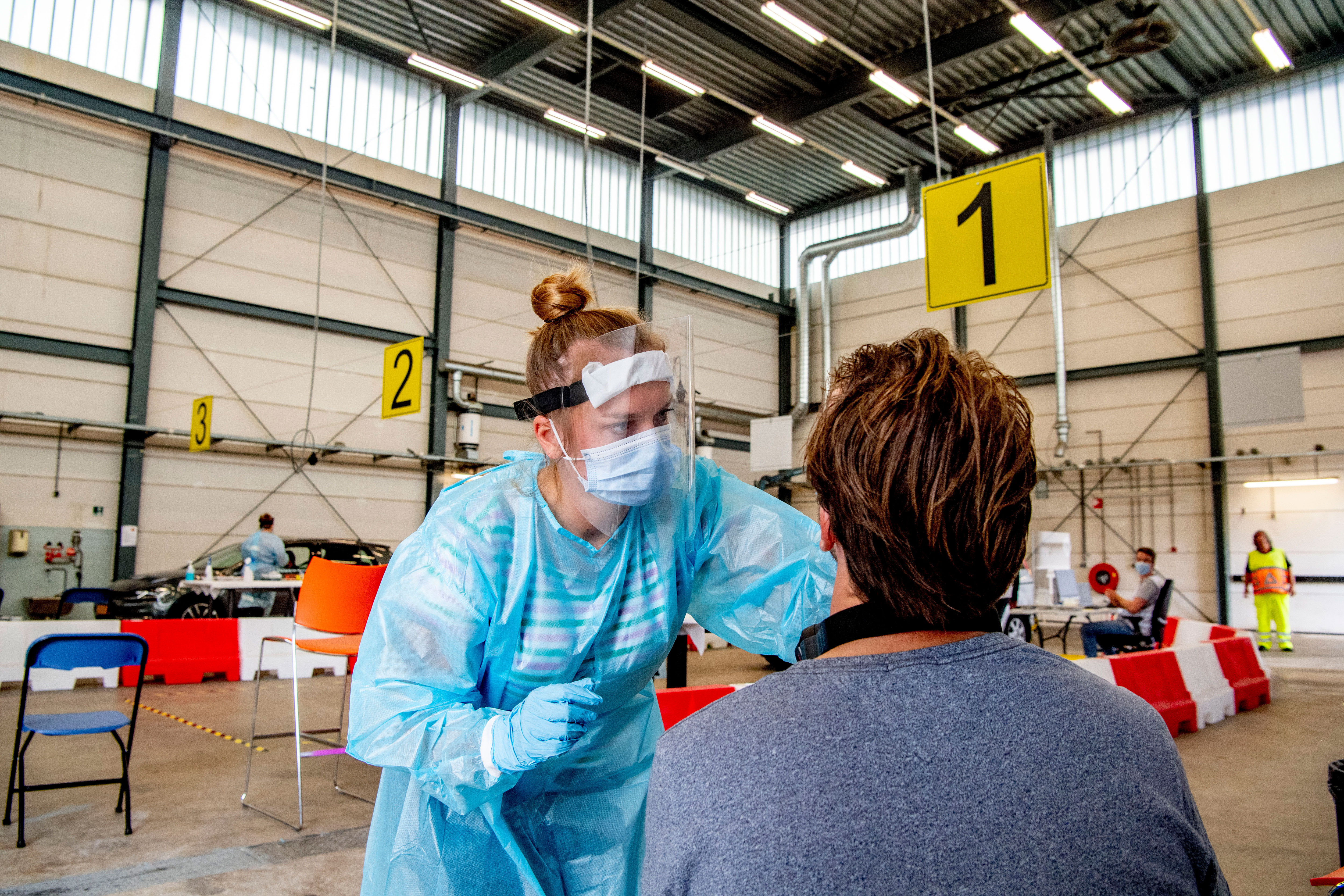 A health worker in Utrecht, Netherlands, tests someone for Covid-19 on August 31. Robin Utrecht/SOPA Images/LightRocket/Getty Images
A health worker in Utrecht, Netherlands, tests someone for Covid-19 on August 31. Robin Utrecht/SOPA Images/LightRocket/Getty ImagesThe demand for coronavirus tests is exceeding supply in the Netherlands, Dutch Health Minister Hugo de Jonge said Friday, as the government announced that medical and education workers would get testing priority from Monday.
It will still be a few weeks before everyone with complaints will again be able to be tested quickly,” the minister tweeted.
Dutch Prime Minister Mark Rutte will hold a press conference Friday evening at 7 p.m. local time (1 p.m. ET), where he is likely to announce new pandemic measures, national broadcaster NOS reported.
Rutte was asked in the Dutch Parliament on Thursday to confirm reports that the new measures would involve making cafes and restaurants close early in some areas of the country.
The PM said that ministers were "still discussing" what action to take with regional officials, according to NOS.
Coronavirus cases have spiked dramatically in the Netherlands, rising more than 50% week over week. The daily reported infections are now higher than they were this spring, with 1,756 new infections reported on Thursday, according to the National Institute for Public Health and the Environment.
Thursday marked the third-straight day of record case numbers.
Presidents of two historically Black colleges join vaccine trials to encourage participation
From CNN's Dakin Andone
When the presidents of two historically Black colleges in the US announced they were participating in a Covid-19 vaccine trial, they hoped to encourage other African Americans to do the same to ensure that an eventual vaccine has been tested on -- and is effective for -- people of color.
Instead, they've been met with widespread skepticism from people who point to the United States' history of unethical medical experiments on Black people.
Presidents Walter Kimbrough of Dillard University and Reynold Verret of Xavier University sent letters to their university communities earlier this month saying they decided to participate in a Phase 3 trial of a vaccine in development by Pfizer.
Overcoming the virus will require the availability of vaccines effective for all peoples in our communities, especially our black and brown neighbors," they wrote.
Read more:
Jordan threatens to jail the organizers of social gatherings
From CNN's Mostafa Salem in Abu Dhabi
Jordan will imprison people who organize social gatherings for up to a year, Minister of State for Media Affairs Amjad Adaileh said in a Thursday news conference, according to state news agency Petra.
The strict penalties were brought in “to prevent... violations that caused [a] higher [infection] rate and triggered a surge in the Covid-19 cases during the past days,” the minister said, according to Petra.
Jordan moved quickly in mid-March to impose a strict lockdown and a state of emergency to curb coronavirus cases. As a result the country had one of the lowest infection rates in the Middle East.
In June, the government lifted restrictions after cases dropped to less than 10 a day.
But Covid-19 has surged in the country over the past month, with total infections reaching 4,131 after 279 people were reported to have coronavirus on Thursday.
The new rules threaten to sanction anyone who organizes "a flouting gathering” and threaten jail sentences "for a period ranging from three months to a year.”
On Thursday, Jordan also imposed a two-week closure of schools after cases were reported in two areas in the Karak region, according to Petra.
Outgoing US ambassador to China blames Beijing for coronavirus as he heads home to help Trump
From CNN's David Culver and Steven Jiang in Beijing
The outgoing United States Ambassador to China has denounced Beijing's initial handling of the coronavirus, saying that "what could have been contained in Wuhan ended up becoming a worldwide pandemic."
Speaking to CNN in Beijing on Friday, Terry Branstad, a former longtime Iowa governor, agreed with US President Donald Trump that China was to blame for the pandemic, adding that the "Chinese system was such that they covered it up and even penalized the doctors who pointed it out at the beginning."
Echoing criticisms of the Chinese Communist Party made by US Secretary of State Mike Pompeo and other White House officials, Branstad also blamed China's system for leading to a spike in tensions and a degrading of one of Washington's most consequential bilateral relationships.
Sudden departure: Branstad surprised many observers when he announced this week he was stepping down from the important diplomatic posting, which he has held since 2017, in order to return to the US.
He told CNN that he was keen to get back home, pointing out that he had been in the role "longer than the previous three ambassadors."
Asked whether he will campaign on behalf of Trump, who may be relying on Branstad to help swing key Midwestern states, the ambassador said that "if the President asks me to appear at some of his events, I will, as I did in 2016."
Read the full story:
The US doesn't have to wait for a vaccine to get Covid-19 under control, top doctor says
From CNN's Christina Maxouris
With the timeline of a widely available vaccine still unknown, the United States' top doctor says the country doesn't have to wait to get Covid-19 under control.
"We can do it right now," US Surgeon General Dr. Jerome Adams said Thursday. "The tools to stop this virus are already in our communities."
It's been done before -- in places like New York, Adams said.
How New York did it: The state was the hardest-hit by the virus in early spring, implemented one of the earliest shutdown orders in the US and reopened regions only when they met several health requirements. In recent weeks, New York has maintained an infection rate lower than 1%.
Community mitigation: It may sound like a simple solution to a complex problem, but health officials across the country have said that widespread adherence to safety measures like widespread mask usage could be nearly as powerful as another lockdown. And researchers with the University of Washington's Institute for Health Metrics and Evaluation project more than 115,000 lives could be saved by January if 95% of Americans wore masks.
These measures, if implemented, could also mean a milder flu season this year, according to a new study.
"If extensive community mitigation measures continue throughout the fall, influenza activity in the United States might remain low and the season might be blunted or delayed," according to a study published Thursday in the US Centers for Disease Control and Prevention's Morbidity and Mortality Weekly Report.
Read the full story:
The pandemic didn't solve climate change. This week's disasters are proof
From CNN's Eliza Mackintosh
If you thought Covid-19 restrictions, like enforced lockdowns and social distancing, would put a lasting dent in our collective carbon footprint and save the world from warming, you were mistaken.
Earlier this year, in the midst of a horrific news cycle and a rapidly mounting death toll, that notion was a welcome silver lining to the pandemic.
As people around the world stayed at home to stop the spread of the coronavirus, greenhouse gas emissions from the energy and transport industries plummeted, dropping to record lows.
But it may have given some a false sense that the worst effects of climate change were being mitigated.
They're not.
Unfolding disasters: Just in the past week, we learned that massive glaciers are tearing loose from the Antarctic and Greenland ice sheets, driven by increasingly high temperatures at the poles, and, in turn, accelerating sea level rise and posing enormous threats to the millions of people living in coastal areas.
Meanwhile, devastating wildfires, fueled by hot, dry winds and "tinderbox" conditions, have scorched millions of acres across the western United States, triggering mass evacuations, claiming dozens of lives and sending smoke haze billowing across the country, as far as Europe.
If that wasn't enough, the Atlantic is also having one of its busiest hurricane seasons on record, spurred by warm sea surface temperatures. To give you a sense of just how busy: Hurricane Sally, which blew ashore as a Category 2 hurricane early Wednesday in Alabama, was one of five tropical cyclones in the Atlantic on Monday -- a phenomenon that's happened only once before, almost 50 years ago.
Climate crisis: All of these extreme weather events can be linked to global warming, caused by rising levels of carbon dioxide and other heat-trapping greenhouse gases in the atmosphere, mainly from humans burning fossil fuels.
They're grim reminders that the world has a much bigger existential crisis on its hands than Covid-19. And it will take a lot more than a few months of forgoing air and car travel to stop it.
Read the full story:
UK health secretary doesn't rule out new lockdown, calls it "last line of defense"
From CNN’s Vasco Cotovio in London
British Health Secretary Matt Hancock does not rule out another national lockdown to stop the spread of the novel coronavirus in the United Kingdom, but says that is “the last line of defense.”
Hancock explained that a national lockdown would be the last in a list of measures the government has at its disposable to slow down the spread of the virus.
“The first line of defense is that everybody should follow the social distancing, after that, these local lockdowns, and the last line of defense is for national action,” he said. “I don't want to see that, but we will do whatever is necessary to keep people safe in a very difficult pandemic.”
Hancock encouraged people to stick to the new rules, which came into effect on Monday. “The country once again needs to come together and recognize there is a serious challenge, that the virus is accelerating,” he said.
Rising cases: The UK has seen a surge in coronavirus cases in recent weeks, with daily new infections rising above 3,000.
In an interview with the BBC on Friday, Hancock descried the situation as "very serious."
“We have seen an acceleration in the number of cases over the last couple of weeks and we've also sadly seen that the number of people hospitalized with coronavirus is doubling about every eight days, so we do need to take action,” he said.
These CNN Heroes are helping a flood of newly released inmates adapt to a world gripped by Covid-19
From CNN's Allie Torgan
Despite early efforts to keep inmates and staff safe, Covid-19 still spread rampant through one of the largest prison systems in the United States.
More than 12,400 inmates in California have tested positive for Covid-19 and 60 have died, according to the California Department of Corrections and Rehabilitation. There have also been more than 3,400 confirmed cases among employees.
For advocates like Carroll who work with inmates to reduce the cycle of incarceration, the spread of the virus on the inside is concerning -- as is the lack of resources on the outside to support the influx of early releases, Carroll says.
Carroll has taught an in-person life skills program at San Quentin State Prison for 20 years. In early March, she shifted to a virtual model to keep her students safe. As Covid-19 spread and more inmates were released -- part of California's effort to reduce population and maximize space -- the calls for help escalated. Former inmates struggled to find support, housing and, in many cases, medical care.
Thousands of California inmates have been released early during the pandemic, and Carroll says many transitional homes, like the one she runs, are at capacity.
Carroll says her group provides assistance "almost 24/7," offering referrals, food, medical supplies and support services to prevent recidivism. She wants those returning home to know there is hope and help as they get their lives back on track.
"We have to change our attitude. Do we make them successful at coming home, as a society? Do we help them? Or do we hinder it?" she said.
Read the full story:

 5 years ago
736
5 years ago
736 